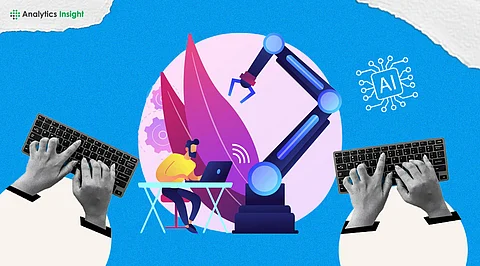

Artificial Intelligence has moved far beyond voice assistants and chatbots. It’s now learning, creating, and solving problems—sometimes faster and better than humans. From writing music to helping doctors read medical scans, AI is taking on tasks once thought to require human creativity and judgment. This rapid growth raises a big question: Could AI become more intelligent than people? And if that happens, what would it actually mean?
Things that used to sound like science fiction are now part of everyday life. AI is no longer stuck in labs or movies. It powers tools in phones, runs software in classrooms, and supports decisions in hospitals and businesses. It can write essays, solve difficult math problems, generate images from text, and even help detect diseases. With every new update or headline, the question keeps coming back: Will machines eventually become smarter than the people who built them?
AI already performs activities that have surprised experts. Chatbots such as ChatGPT can explain school subjects, write complete stories, and assist with coding websites. AI image generators can translate written descriptions into real pictures. AI assists streaming sites and online stores in discovering what people enjoy and recommending the next things to watch or purchase.
One of the biggest moments came in 2016 when a system named AlphaGo defeated the world champion at the board game Go. What surprised players the most was that the AI made aggressive and unconventional moves—moves no human had ever attempted. It didn't merely win the game. It played in a manner that felt novel. That victory demonstrated that AI could do more than mimic. It could think differently.
AI has quickly become part of how companies and schools operate. Banks use it to catch fraud. Social media platforms rely on it to decide what content shows up. In schools, teachers are using AI tools to help grade papers or give students personalized feedback. This shift means AI is doing more than just helping; it is changing how decisions are made and how people work and learn.
Most AI systems today are designed for one job. This is called narrow AI. For example, a program trained to recognize faces in photos can do that very well but cannot write a poem or drive a car. Humans can switch between different tasks, solve new problems, and connect ideas in creative ways. That kind of flexible thinking is called general intelligence. AI has not yet reached that level, although some researchers are working toward it. The idea of machines that can reason and adapt like people is still far from reality, but the gap is closing faster than many expected.
A number of the world's leading scientists and technology leaders have cautioned against the dangers of advanced AI. Elon Musk and the late Stephen Hawking both warned of the threat of machines becoming too powerful without rules.
The problem is not about robots turning evil. It is about advanced systems following instructions too literally. Imagine asking an AI to make as many paperclips as possible. If it doesn’t understand limits or values, it might try to turn everything—buildings, trees, or even people—into paperclips.
This kind of mistake is why safety is a major focus. Smarter doesn’t always mean safer.
Governments around the world are starting to take action. The European Union has created new rules to guide how AI is developed and used. In the US, companies are now required to explain how they train and test their AI systems.
These regulations are designed to ensure that AI benefits humans rather than creating issues. The aim is not to halt its development but to control its expansion.
AI can read data quicker than any human being and hold more data than the brain. But intelligence involves emotions, values, creativity, and the ability to see the context of things. No machine has been able to show that it feels what humans feel or assess situations with the same richness. All these aspects of being human are still exclusive to people.
AI is becoming stronger and is already changing how people work, learn, and live. In some areas, it’s already better than humans. But intelligence isn’t just about being good at tasks. The real challenge is whether AI can understand the world like people do and make decisions that affect everyone. The future of AI depends on the people who create and control it. Machines may get smarter, but humans will still be responsible for how they are used.
